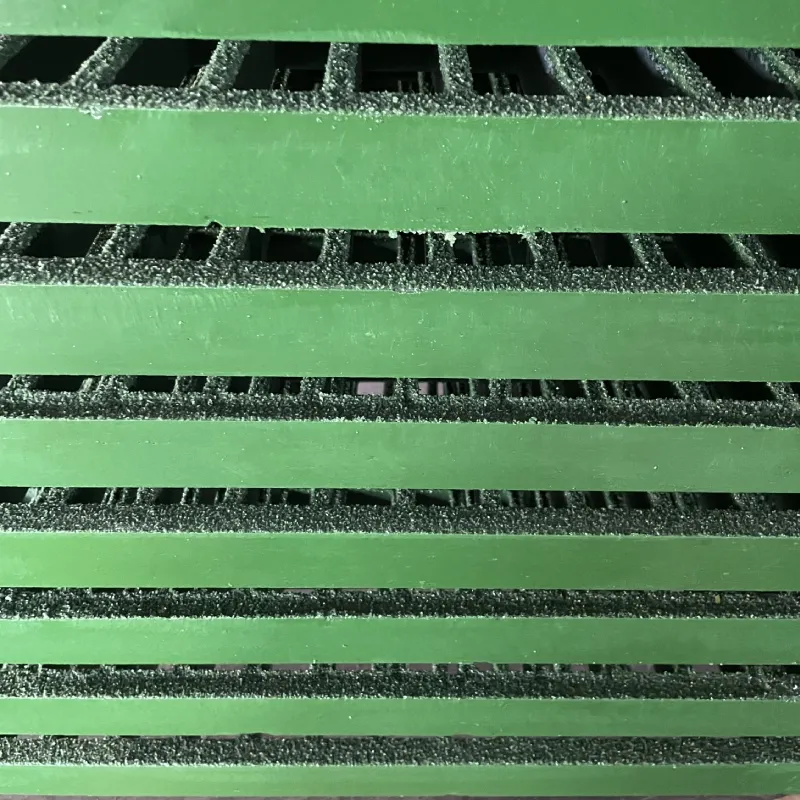loading...
- No. 9, Xingyuan South Street, Dongwaihuan Road, Zaoqiang County, Hengshui, Hebei, China
- admin@zjcomposites.com
- +86 15097380338
- Welcome to visit our website!
frp filter tank
Understanding FRP Filter Tanks Efficiency Beyond Limits
Filtration is a critical process in various industries, ensuring that the final products meet quality standards and regulatory requirements. Among the range of filtration systems available, Fiber Reinforced Plastic (FRP) filter tanks have gained significant attention due to their unique properties and advantages. This article delves into the concept of FRP filter tanks, exploring their applications, benefits, and why they’re becoming a preferred choice in many sectors.
What is an FRP Filter Tank?
FRP filter tanks are storage and filtration systems crafted from fiberglass reinforced plastic. This composite material combines the lightweight properties of plastic with the durability and strength of fiberglass. The result is a robust tank that can withstand harsh environmental conditions, making it ideal for a range of applications including water treatment, chemical processing, and aquaculture.
Applications of FRP Filter Tanks
FRP filter tanks are widely used in various industries due to their versatility. Here are some prominent applications
1. Water Treatment They are extensively used in municipal and industrial water treatment facilities. The tanks effectively filter out sediments, silt, and other impurities, ensuring clean, potable water.
2. Industrial Process Water Many manufacturing processes require purified water. FRP filter tanks help maintain water quality, preventing equipment damage and ensuring efficient operations.
3. Aquaculture In fish farming, maintaining water quality is crucial. FRP filter tanks help in filtering out waste products, ensuring a conducive environment for aquatic life.
4. Chemical Processing In industries dealing with corrosive substances, FRP filter tanks provide an excellent alternative to metal tanks, as they resist corrosion and are easier to maintain.
Benefits of Using FRP Filter Tanks
FRP filter tanks offer numerous advantages that set them apart from traditional filtration systems
1. Corrosion Resistance One of the most significant advantages of FRP tanks is their resistance to corrosion. Unlike metal tanks that can rust and degrade over time, FRP tanks maintain their structural integrity—even in hostile environments.
frp filter tank

2. Lightweight and Easy to Install FRP is approximately one-fourth the weight of steel, making it easier to transport and install. This lightweight nature can lead to reduced labor and installation costs.
3. Durability FRP filter tanks are designed to last. They can endure high pressures and temperatures, which is essential in many industrial applications.
4. Customizability FRP tanks can be manufactured in various shapes and sizes, allowing for customization according to specific requirements. This flexibility makes them suitable for diverse applications.
5. Cost-Effectiveness Although the initial investment may be higher compared to conventional materials, the long-term savings through reduced maintenance costs and extended lifespan make FRP filter tanks a cost-effective solution.
Considerations When Choosing FRP Filter Tanks
When selecting an FRP filter tank, several factors should be considered to ensure optimal performance
1. Tank Size and Capacity It’s essential to determine the required volume based on the application. Ensuring the correct size will prevent overflow and ensure efficient filtration.
2. Type of Filtration System Depending on the specific needs (e.g., sand filtration, carbon filtration), different types of FRP tanks are designed to suit varying filtration processes.
3. Environmental Conditions Assessing the environmental conditions where the tank will be used is crucial. Extreme temperatures or chemical exposure may influence the choice of specific FRP materials.
4. Regulatory Compliance Ensure that the chosen FRP filter tank meets all industry and environmental regulations related to filtration and waste treatment.
Conclusion
In the ever-evolving landscape of filtration technology, FRP filter tanks stand out for their robustness, versatility, and cost-effectiveness. Their ability to perform efficiently in various applications—from water treatment to chemical processing—illustrates their growing importance in industrial operations. As industries continue to prioritize sustainability and efficiency, adopting advanced materials like FRP for filtration systems is likely to become a standard practice, paving the way for improved industrial processes and environmental protection.
-
GRP Structures: The Future of Lightweight, High-Performance EngineeringNewsJun.20,2025
-
FRP Water Tank: High-Performance Storage for Corrosive and Clean Water SystemsNewsJun.20,2025
-
FRP Square Tube: The New Industry Standard for Chemical and Structural ApplicationsNewsJun.20,2025
-
FRP Pultruded Profiles: The Ultimate Choice for Lightweight Structural StrengthNewsJun.20,2025
-
FRP Handrails: The Safer, Smarter, and Stronger Choice for Modern InfrastructureNewsJun.20,2025
-
FRP Grating: The Smart Solution for Durable, Lightweight Industrial FlooringNewsJun.20,2025
-
Why Choose a Galvanized Water Tank for Your Storage NeedsNewsMay.21,2025
